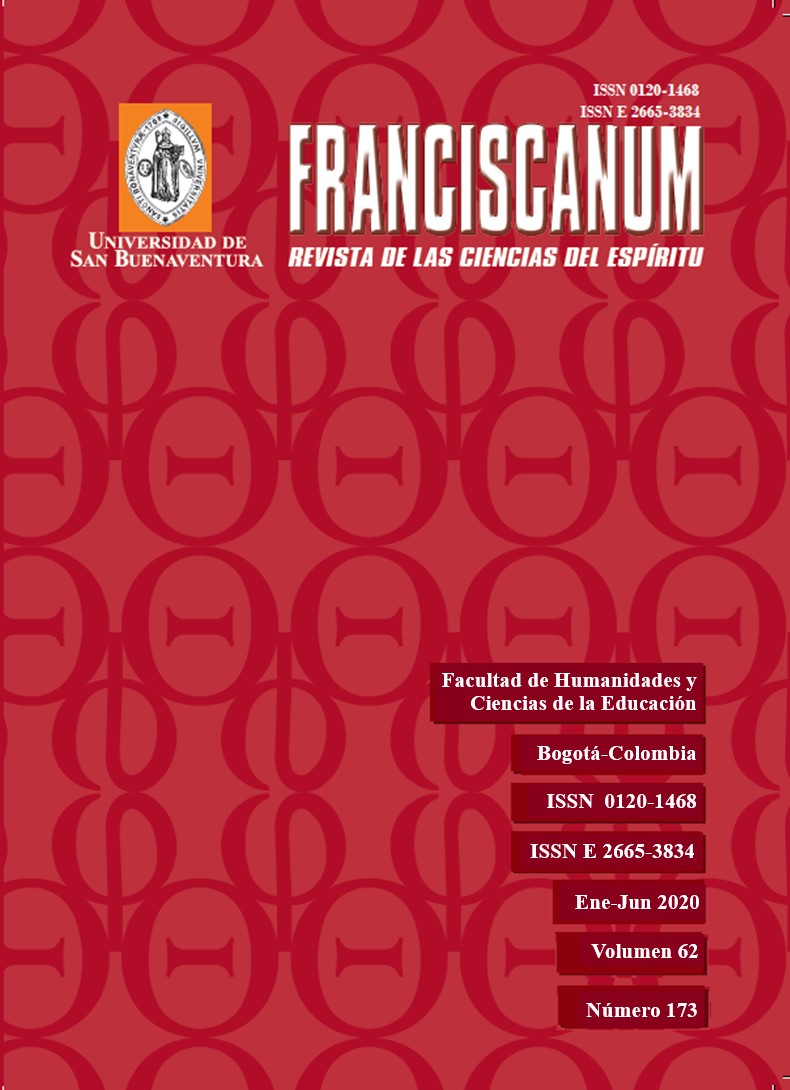This journal provides immediate open access to its content, based on the principle that giving the public free access to research helps a greater global exchange of knowledge.
Therefore, the Creative Commons 4.0 Attribution Attribution - Equal Share (by-sa) License is accepted: The commercial use of the work and the possible derived works is permitted, the distribution of which must be done with a license equal to that regulates the original work.
http://creativecommons.org/licenses/by-sa/4.0/
Along these same lines and in line with the Open Access policy, it is clarified that the authors maintain their rights to articles, without restrictions and, in the same way, they maintain their publication rights, without restrictions. They are only asked to reference the number of the Franciscanum magazine where the article initially appeared.
Abstract
This research offer an sketch of an alternative way of conceiving the classic category of subjectivity which underlies the concept of conscientious objection and civil disobedience.
Most usual viewpoints on this topic focuses on the individual and his/her rights. Through showing that this approach is not satisfying and insufficient, this research highlights the importance of conceptualizing anew the category of subjectivity, which in turn makes possible a new way of conceptualizing the conscientious objection, i.e. thinking of it not any more as an individual right but as a social responsibility duty.
To address this alternative approach this research draws upon mostly the work of Emmanuel Levinas, who focus all his philosophical reflections on the perspective of the other (autrui).




















